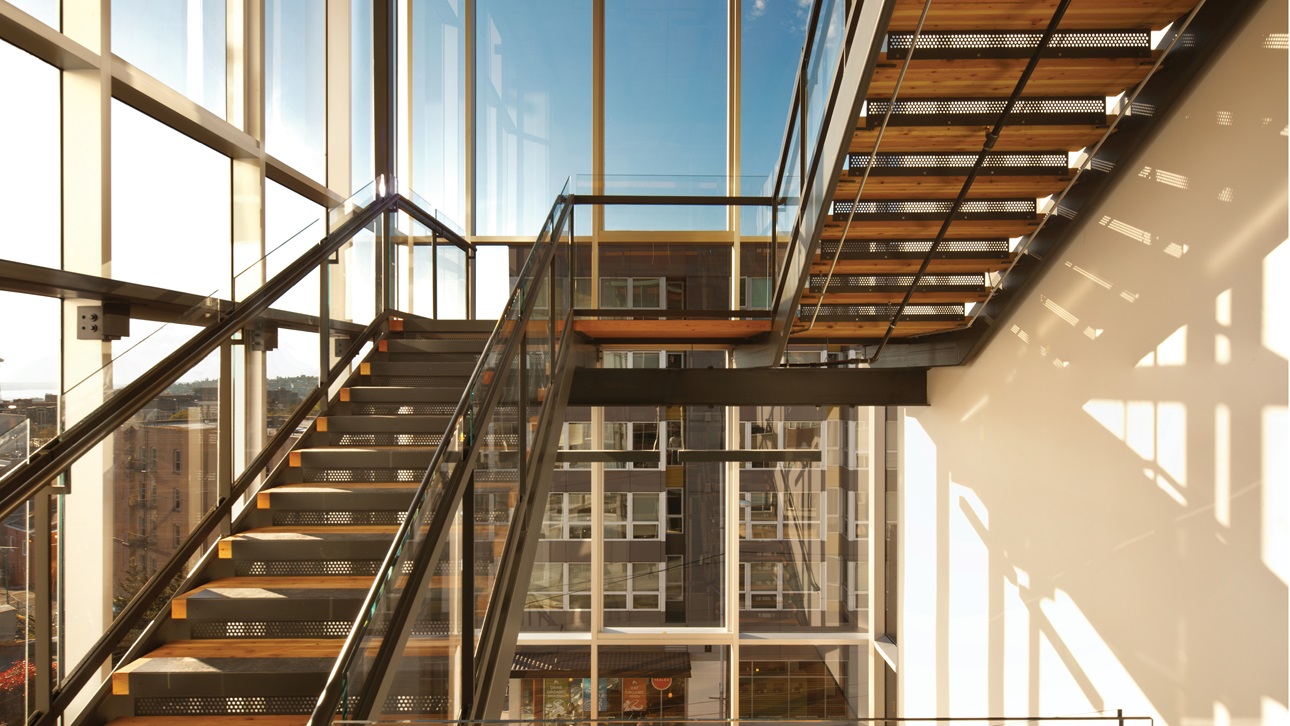Health and Social Equity in Real Estate: State of the Market

The new ULI report, Health and Social Equity in Real Estate: State of the Market, presents a snapshot of real estate professionals’ awareness and adoption of practices supporting health and social equity, and identifies opportunities for further implementation of such practices by real estate organizations and ULI.
The report summarizes research undertaken by the Urban Land Institute’s Building Healthy Places Initiative, with support from HR&A Advisors and Integral Group. The goal of the assessment was to understand the extent that real estate practitioners adopted health and social equity practices, and to identify opportunities to catalyze broader adoption.
The team conducted an industry-wide survey fielded between August and September 2019 with nearly 700 respondents, held expert interviews with 23 industry leaders, and facilitated workshops, all with the advice of a working group of industry leaders.
This research represents the first comprehensive and cross-cutting data about the real estate industry’s adoption of health and social equity practices.
Over the course of 2020, public health and racial equity have become key issues in the national discourse, driven by the coronavirus pandemic and the nationwide protests following the murder of George Floyd by police officers in Minneapolis. These events have raised awareness across the country and within the real estate industry about the role of real estate in promoting public health and addressing the country’s deep racial and social inequities. Awareness is coupled with a growing sense of urgency among ULI members, leaders and others to reckon with the legacy of racism in land use and to take action to address it. As a result, the trend toward social equity and health is expected to accelerate.
Since March 2020, the global public health crisis has stimulated awareness about the built environment’s impact on individual and community vulnerability to transmissible disease, including the disproportionate exposure of low-income communities and communities of color to adverse health and economic outcomes. In the next wave of health and real estate, leaders will look outside the building to improve community health outcomes.
As it contends with a period of massive change, the real estate industry can use these findings and recommendations to advance the more widespread adoption of health and social equity. There is ample opportunity for ULI and the industry writ large to continue to support adoption of health and social equity practices in real estate.
Report Summary: The new ULI report, Health and Social Equity in Real Estate: State of the Market, presents a snapshot of real estate professionals’ awareness and adoption of practices supporting health and social equity, and identifies opportunities for further implementation of such practices by real estate organizations and ULI.
The report summarizes research undertaken by the Urban Land Institute’s Building Healthy Places Initiative, with support from HR&A Advisors and Integral Group. The goal of the assessment was to understand the extent that real estate practitioners adopted health and social equity practices, and to identify opportunities to catalyze broader adoption.
The team conducted an industry-wide survey fielded between August and September 2019 with nearly 700 respondents, held expert interviews with 23 industry leaders, and facilitated workshops, all with the advice of a working group of industry leaders.
This research represents the first comprehensive and cross-cutting data about the real estate industry’s adoption of health and social equity practices.
Over the course of 2020, public health and racial equity have become key issues in the national discourse, driven by the coronavirus pandemic and the nationwide protests following the murder of George Floyd by police officers in Minneapolis. These events have raised awareness across the country and within the real estate industry about the role of real estate in promoting public health and addressing the country’s deep racial and social inequities. Awareness is coupled with a growing sense of urgency among ULI members, leaders and others to reckon with the legacy of racism in land use and to take action to address it. As a result, the trend toward social equity and health is expected to accelerate.
Since March 2020, the global public health crisis has stimulated awareness about the built environment’s impact on individual and community vulnerability to transmissible disease, including the disproportionate exposure of low-income communities and communities of color to adverse health and economic outcomes. In the next wave of health and real estate, leaders will look outside the building to improve community health outcomes.
As it contends with a period of massive change, the real estate industry can use these findings and recommendations to advance the more widespread adoption of health and social equity. There is ample opportunity for ULI and the industry writ large to continue to support adoption of health and social equity practices in real estate.


